Cargando...
Recursos educativos
-
Nivel educativo
-
Competencias
-
Tipología
-
Idioma
-
Tipo de medio
-
Tipo de actividad
-
Destinatarios
-
Tipo de audiencia
-
Creador
Lo más buscado
- Problemas multiplicativos
- Repaso de francés
- Ejercicios de puntuación
- ejercicios inglés
- Aprender a educar
- Orientación y tutoría
- Animales dibujados para segundo
- Decadencia del imperio Romano
- Actividades cientificas para niños sexto
- Actividades de geometría cuarto
- Cáncer
- Repaso de lengua castellana en primero
- colorear dibujo
- Huesos del cuerpo humano
- Género y número
-

Before you start - The Baroque Age
EduBook Organización
- 3024 visitas
Didactic objectives Analyse the demographic changes that took place in 17th century Europe. Explain the characteristics of the economy and society of 17th century Europe. Identify the most important…
-
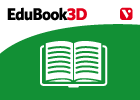
Introduction - The Middle Ages
EduBook Organización
- 3014 visitas
The Middle Ages began when the Roman Empire fell in 476. In 711, Muslim armies from North Africa conquered almost all of the Iberian Peninsula. They created a new state called Al-Andalus. In the north…
-
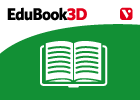
Introduction - Plant reproduction
EduBook Organización
- 3007 visitas
In this unit we are going to learn about how flowering and non-flowering plants reproduce. The reproductive organs of most plants are in the flowers. It is in this part of the plant that the two…
-
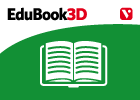
20th century art
EduBook Organización
- 2974 visitas
Many artists reacted to the events of the 20th century through their work. Some expressed protest through their art, and others used it to express people's suffering. Architecture Many 20th century…
-
Match. Napoleon's political evolution
EduBook Organización
- 2977 visitas
Match the events with the date they happened: Napoleon Bonaparte is defeated at the Battle of Waterloo. Period known as the Consulate. Napoleon makes himself Emperor. Napoleon Bonaparte is named consul.…
-
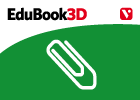
Did you know...
EduBook Organización
- 2955 visitas
The emergence of a global communications network (the Internet) has produced radical changes in our social habits. The social networks created using this new technology enable users to communicate…
-
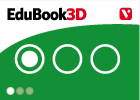
Choose. Political and strategic interests
EduBook Organización
- 2886 visitas
Choose the correct answer: When did the major European powers begin to expand their territories on other continents? Which European powers built the largest colonial empires in the 19th century? What…
-
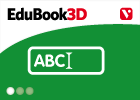
Final self-evaluation 3.10 - Medieval Cities
EduBook Organización
- 2850 visitas
Rewrite each sentence and correct the mistakes: Between the 12th and 14th centuries, agricultural expansion and the growth of the population stimulated migration to the countryside. Trade grew and, for…
-
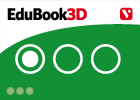
Final self-evaluation 10.07 - The Baroque Age
EduBook Organización
- 2854 visitas
Choose the correct answer: The veneration of religious images in churches was a feature of... The Baroque introduced new aesthetic values, such as... The most representative figure of Italian Baroque…
-
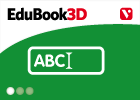
Final self-evaluation T12 08 - Spain under Franco (1939-1975)
EduBook Organización
- 2843 visitas
Complete the sentences with the missing words: The country's came to an end in 1953, when Spain signed a collaboration agreement with the United States and a Concordat with the Holy See. Under…
Te estamos redirigiendo a la ficha del libro...













